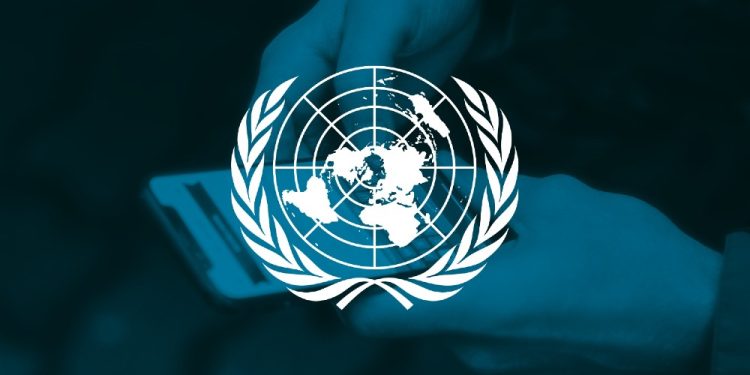The United Nations (UN) is no fan of free speech and one of its plans to “address” so-called “misinformation, disinformation, hate speech and stigmatization” is on the verge of being finalized.
(Article cross-posted from Reclaim The Net)
This unelected intergovernmental organization, which wields significant influence over its 193 member states, recently published the final draft of its Political Declaration of the United Nations General Assembly High-level Meeting on Pandemic Prevention, Preparedness and Response.
The final draft contains several agreements from heads of state and government to crack down on lawful speech. Additionally, it contains pledges from these heads of state and government to back two instruments that will give the UN’s World Health Organization (WHO) enhanced powers to target “misinformation” and build out its surveillance networks.
These instruments, the international pandemic treaty and amendments to the International Health Regulations (2005), have been in the works since 2021 and despite facing major pushback, are on track to be completed by May 2024.
The final draft of this political declaration is being developed for the UN’s High-Level Meeting on Pandemic Prevention, Preparedness and Response which will take place on September 20, 2023 in New York. The political declaration outlined in this draft will be finalized at this meeting.
While UN political declarations aren’t usually legally binding, they do wield significant legal influence. According to the UN, declarations “represent the dynamic development of international legal norms and reflect the commitment of states to move in certain directions, abiding by certain principles.”
The proposed speech crackdowns are outlined in several sections of the final draft of this political declaration.
In section OP35, the heads of state and government agree to “take measures to counter and address the negative impacts of health-related misinformation, disinformation, hate speech and stigmatization, especially on social media platforms” and counter “vaccine hesitancy in the context of pandemic prevention, preparedness and response.” Additionally, section OP42 includes an agreement to combat “misinformation.”
The UN member states back the pandemic treaty in section OP15 and agree to encourage the Intergovernmental Negotiating Body (the group that’s responsible for drafting and negotiating the pandemic treaty) to conclude their negotiations on the “WHO convention, agreement or other international instrument on pandemic prevention, preparedness, and response” (the full name of the WHO’s pandemic treaty).
Not only do UN member states give explicit backing to the pandemic treaty and push for it to be finalized but they also encourage the Intergovernmental Negotiating Body (INB) to prioritize the “need for equity.” Equity is framed by its proponents as something that encourages fairness but critics have warned that equity policies can lead to bias and the injection of “radical ideology.”
The support for the amendments to the International Health Regulations (IHR) is contained in section OP16 of the final draft. This section encourages the working group that’s focused on these amendments to continue its work with respect to the intended finalization date of May 2024.
This political declaration is one of the many ways the UN is tightening its grip on speech. This year alone, it has started building a “digital army” to fight against “deadly disinformation”, encouraged people to snitch on each other for “hate speech”, and claimed that censoring “disinformation” and “hate speech” will protect “free speech.”
The UN has also consulted with several governments and blocs on their censorship work. Specifically, it has attended multiple “disinformation sessions” with a UK government censorship agency and held discussions with the European Union on how to address “disinformation” on digital platforms.
If you’re tired of censorship and dystopian threats against civil liberties, subscribe to Reclaim The Net.
Sound off about this article on the End Medical Tyranny Substack.
What Would You Do If Pharmacies Couldn’t Provide You With Crucial Medications or Antibiotics?
The medication supply chain from China and India is more fragile than ever since Covid. The US is not equipped to handle our pharmaceutical needs. We’ve already seen shortages with antibiotics and other medications in recent months and pharmaceutical challenges are becoming more frequent today.
Our partners at Jase Medical offer a simple solution for Americans to be prepared in case things go south. Their “Jase Case” gives Americans emergency antibiotics they can store away while their “Jase Daily” offers a wide array of prescription drugs to treat the ailments most common to Americans.
They do this through a process that embraces medical freedom. Their secure online form allows board-certified physicians to prescribe the needed drugs. They are then delivered directly to the customer from their pharmacy network. The physicians are available to answer treatment related questions.





